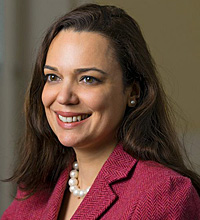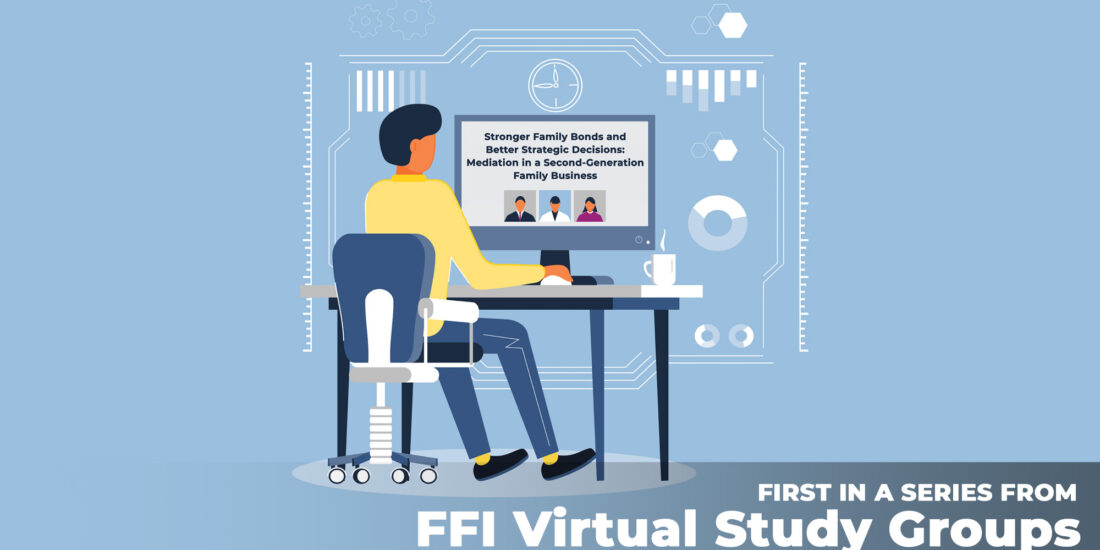Which Type of Advisors Do Family Businesses Trust Most? An exploratory application of socioemotional selectivity
(Authors: John T Perry, J. Kirk Ring and J. Christian Broberg)
Research Applied précis prepared by Maya Prabhu, Coutts Institute
Can a theory from the field of psychology help build our understanding of family business leaders’ decision making and, in particular, in their choice of advisors? The authors introduce us to Socioemotional Selectivity Theory (SEST) and provide an exploratory analysis of how a family business may trust different types of advisors (family or professional) as the firm ages.
SEST explains the core psychological drivers behind choices people make in relation to their social interactions as they age. Put simply, it suggests that as individuals get older or see the end of something significant (their life, life stage or a long-held dream), they prefer to interact with close family and friends who can meet their need to experience positive emotions rather than choosing to interact with a wide set of contacts who could help build their knowledge, career or business.
SEST further explains that if an individual has competing knowledge or emotion-related goals, a view on his/her ‘age’ helps make the decision choosing one over the other. If s/he perceives that her/his time is constrained, s/he will choose fulfilment of emotional needs over knowledge/professional/business ones. Figure 1 in the article is a good visual explanation of this theory.
Although SEST is an individual level theory, the authors wished to test its application to family businesses and their leaders especially in relation to choosing advisors. To do so, they used ‘business age’ as a proxy for individual age, equated emotional goals with socio-economic wealth and knowledge goals as financial wealth. These two types of wealth are not necessarily opposed, but rather should be seen as two ends of a spectrum. Although increasing financial wealth may increase a family business’s socio-emotional wealth, a business with a high financial wealth emphasis seeks to increase financial capital with less concern for the family’s socio-emotional wealth. Figure 2 in the article shows how SEST works in the family business.
Readers who want to learn more about SEST should read the “Theory Development” section of this paper for a more complete explanation of the theory and how it can be applied to family business.
To test their hypotheses, the authors used publicly available data from 650 members of separate family businesses from the 2007 American Family Business Survey (AFBS). More than two-thirds of the respondents were the CEO or highest ranking person in the business, their business turnover was at least $250,000 and the business was at least 10 years old.
The research confirmed two of the authors’ hypotheses:
- As a family business’s age increases, the firm places greater emphasis on socioemotional wealth and less emphasis on financial wealth
- When a family business emphasizes socioemotional wealth more than financial wealth, the firm is more likely to select family members as the most trusted advisors.
The authors remind us that as a family business grows in age and maturity, the number of family members involved also grows and relationships among the individuals can become more complex. Therefore, for the family behind the business, the need to preserve family values and to avoid or manage conflict becomes a key goal. By applying SEST, the authors found that as family businesses age their primary concern is more likely to be a fear of the potential loss of family relationships and ‘family-ness’ or their socio-economic wealth. The family’s legacy and harmony in their relationships are particularly important for leaders of old family businesses as the family and business have grown in size and complexity.
Family businesses tend to have two main types of advisors: family and professional advisors. Professional advisors, such as accountants or financial consultants, are often primarily concerned with maximising a business’s financial wealth. A family business advisor’s interest is often in supporting and maximising the family’s socioemotional and financial wealth. The authors submit that a family business leader that emphasises socioemotional wealth will select business advisors who respect and value the family’s socioemotional wealth. For these leaders while they may have a variety of advisors, their most trusted advisors will be other family members. Family businesses that emphasise financial wealth will also have a variety of advisors, but their most trusted advisors will be professional advisors that can help maximise financial wealth opportunities.
How SEST can contributes to our thinking in practice
SEST can help a variety of advisors to family enterprises understand the behaviour and decision-making by family members particularly at times of inter-generational transition.
- When a family business leader who wants his or her business to continue and learns that none of his or her children want to enter the business, he/she is likely to focus on choosing advisors that will help minimise his/her negative emotional state.
- SEST makes the case for professional advisors to increase their understanding of socioemotional goals even if they are primarily concerned with helping their clients grow their financial wealth. In doing so, they could be even more trusted advisors and appeal to clients and businesses of all ages.
- By highlighting factors that may influence the selection of the most trusted advisor, SEST helps us understand how psychological and time-related factors may dissuade family business owners and managers from using outsiders when attempting to create more professional governance policies and practices, even though outsiders may be able to bring objectivity and skills to the process.
This theory helped me consider the case of a family I have worked with: following a revelation from her children that they wish the business to be sold, the matriarch has applied the brakes to regular family meetings and the creation of stronger communication forums as she cannot bear the thought of discussing this any further and is convinced that her children will change their minds. She is therefore applying the brakes to the consulting process (cancelling meetings, taking a long time to respond to emails) and is spending more time seeking her siblings’ opinions (who are not involved in her business).
A limitation of the study is that the authors did not specifically study how specialist family business consultants may be viewed: they may well be perceived as trusted advisors due to their high emphasis and investment in nurturing the family’s emotional health through their inclusive and consultative process and the work on values, governance and decision making.
Also, as this is the first time that SEST has been applied to family businesses, more research needs to be done using SEST to challenge or validate the authors’ hypotheses.
About the contributor
 Maya Prabhu, CFBA, CFWA, ACFWA, is managing director of the Coutts Institute, Coutts & Co. in London and has been involved in developing numerous reports and pieces of thought leadership. She teaches GEN 504: Philanthropy – More than Money. Maya can be reached at maya.prabhu@coutts.com.
Maya Prabhu, CFBA, CFWA, ACFWA, is managing director of the Coutts Institute, Coutts & Co. in London and has been involved in developing numerous reports and pieces of thought leadership. She teaches GEN 504: Philanthropy – More than Money. Maya can be reached at maya.prabhu@coutts.com.




